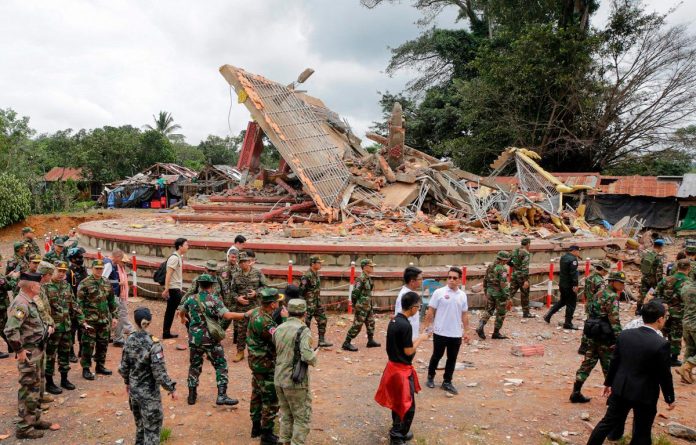BANGKOK: Thailand and Cambodia have accused each other of violating a ceasefire agreement meant to halt recent border clashes that left at least 43 dead. The truce, which took effect on Tuesday, followed five days of intense fighting over disputed temple territories along their 800-kilometre shared boundary.
Thailand’s foreign ministry reported that its troops in Sisaket province were attacked with small arms fire and grenades by Cambodian forces, calling it a “flagrant violation of the ceasefire agreement.” Government spokesman Jirayu Huangsab confirmed overnight clashes but stated that Thai forces maintained control, with border conditions normalising by Wednesday morning.
Cambodia, however, countered with its own accusations. A defence ministry official claimed Thailand twice breached the truce on Tuesday, undermining efforts to stabilise the region. Over 300,000 civilians have been evacuated from border areas since hostilities erupted last week.
At a temple shelter in Thailand’s Surin city, 50 kilometres from the frontier, volunteer Thanin Kittiworranun expressed scepticism. “We don’t believe Cambodia will hold the ceasefire,“ the 65-year-old told AFP. Despite the allegations, an AFP correspondent on the Cambodian side reported no artillery fire since the truce began.
China facilitated talks between the two nations, with deputy foreign minister Sun Weidong hosting a meeting in Shanghai where both sides reaffirmed their commitment to the ceasefire.
The ceasefire remains fragile, with Thailand initially accusing Cambodia of continuing attacks to “undermine mutual trust.” However, subsequent military discussions led to agreements on de-escalation, including halting troop reinforcements.
The recent clashes have surpassed the death toll of previous border conflicts between 2008 and 2011, which claimed 28 lives. The current dispute stems from unclear colonial-era demarcations by French administrators in 1907.
The peace deal was brokered in Malaysia with US President Donald Trump’s intervention, as both nations seek to avoid potential trade tariffs. – AFP








